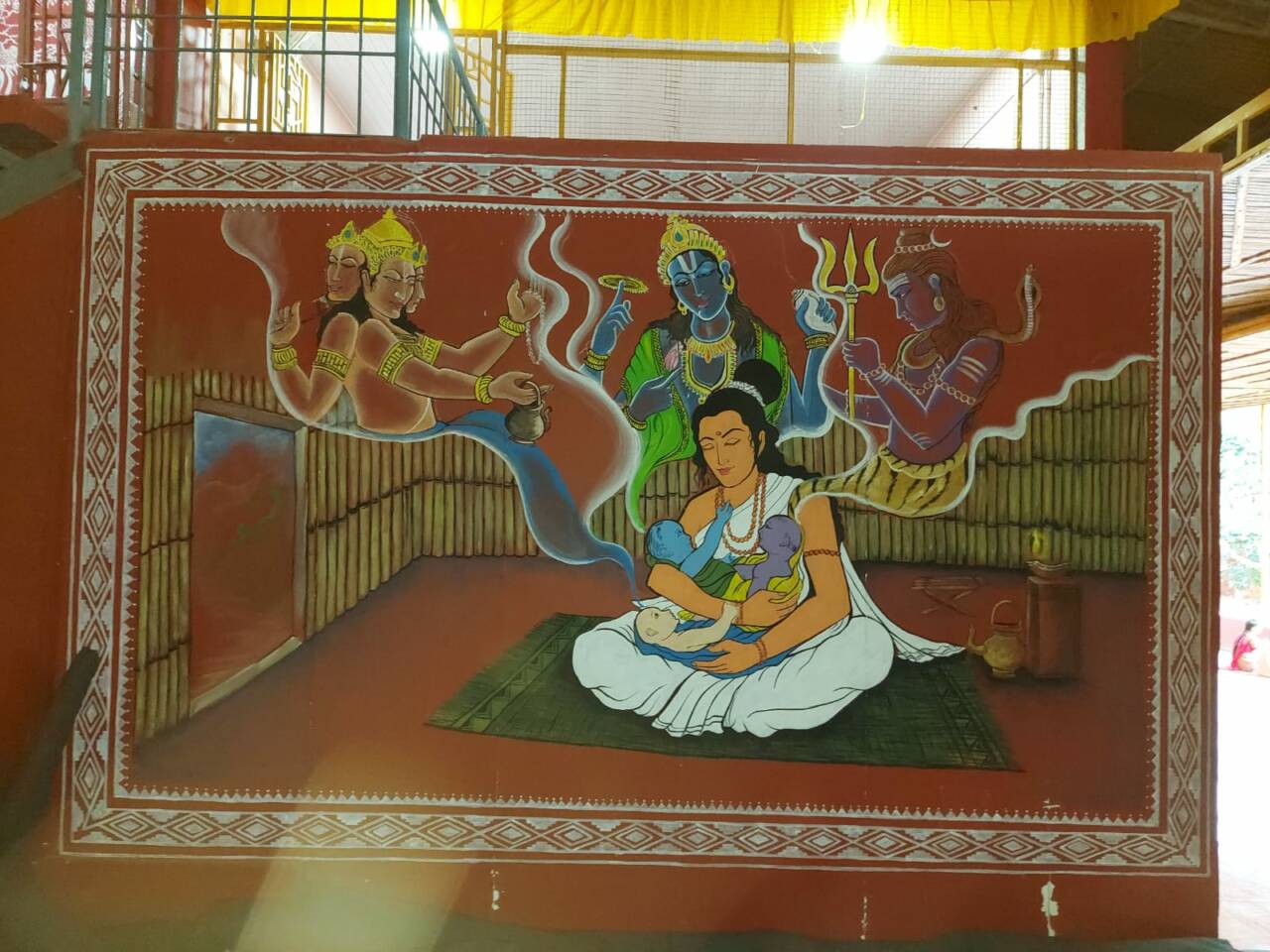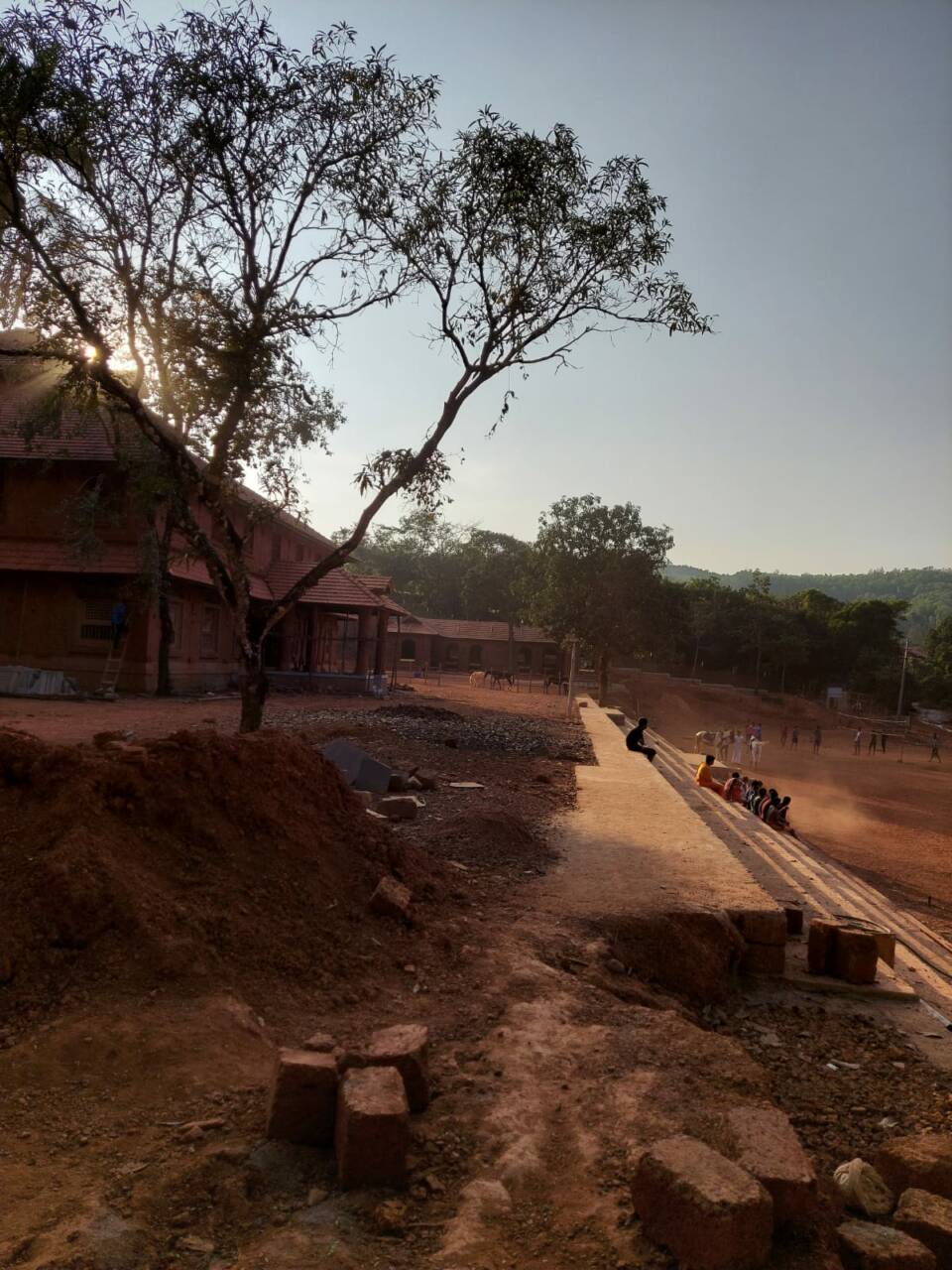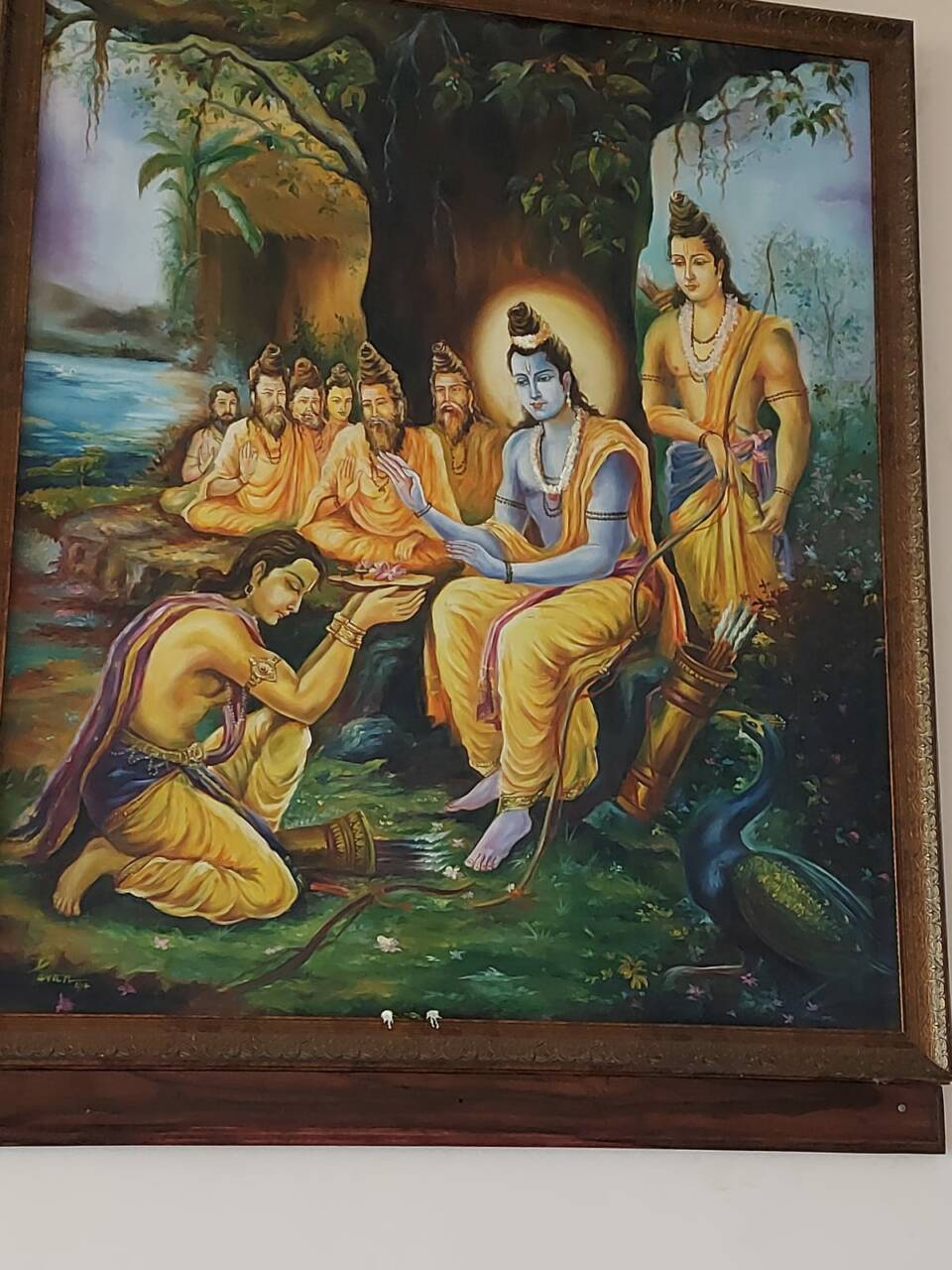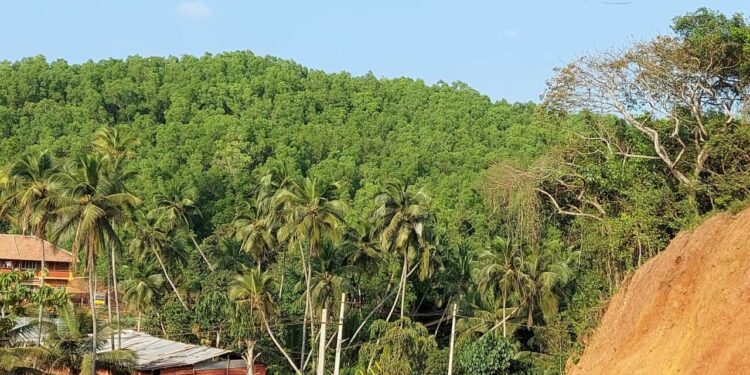Bharat is the land of wisdom where our ancestors learnt about the secrets of the Universe while they were in deep meditation and then taught it to deserving students, generation after generation. This cycle of contemplation, understanding, discussing, honing it to perfection and teaching it to the next generation, continued uninterrupted for thousands of years. The relentless attacks on our civilisation did not stop this cycle from manifesting itself in the nook and corner of our country through the ages. It was as immortal as knowledge itself.

It is said that when the British came to our country, they were amazed at the level of literacy in our country and they realised that if they had to control our country, they had to strike at this transmission of ancient wisdom. And to do this they introduced their method of education which continues till today. From a country which had the highest literacy rate, we became a country of illiterates where literacy was judged by whether one could read and write one’s name or not. With traditional knowledge being replaced by education in a language foreign to us, English, we became a country of people who started disrespecting our ancient knowledge as superstition or backward or unfit for modern times. Over time, we started hating ourselves for our traditions, our rituals and even our festivals. This shame and self-hate reached a crescendo after Independence from the British rule and in the subsequent years, we lost a golden opportunity to regain our lost heritage and went overboard in destroying it. Having Communists as our Education Ministers didn’t help.
But slowly things started changing and with the Internet Explosion, people started sharing information about the past and we realised how much we have lost. There started a scramble for locating, sharing and learning about our past knowledge. In the process we realised that most of the schools which taught such information have now become extinct. This is where our traditional Dharmacharyas and ShreeMathas stepped up. They already had been trying to keep the traditional knowledge alive in their own small way, despite various hardships like lack of students, lack of resources, government interference, lack of suitable opportunities for those students who had passed out from their Paathshalas, and more. Despite all these hardships, some of our ShreeMathas decided to renew efforts to teach interested students, our timeless knowledge.
Yes, our ancient knowledge is not just ancient, it is timeless. The best examples of this are our Bhagwad Gita and the Arthashastra. These two treatises are enough to give us insight into how to lead our lives and how to rule a country in a Dharmic way, in consonance with Nature, Justice and our own True selves. What was true thousands of years back is true today too, and will be true in the future too. This is because these knowledge systems were not derived out of a sense of selfishness or to earn monetary wealth, but with complete responsibility to keep up the balance of Universe and Time itself.
Sri Ramachandrapura Matha, a Shree Matha in the lineage of Jagadguru Shankaracharya, with its headquarters in Gokarna, Coastal Karnataka, is one of the Shree Mathas which works round the clock to spread such ancient knowledge via its various Paathshalas. Guruji, Shree Shree Raghaveshwara Bharati Mahaswamiji was not content with having only Veda Paathshalas. He understood the need to revive education of all the 64 branches of knowledge along with other contemporary subjects if one wanted to keep the other knowledge alive for the future generations. In His words, “Like the organs in a body are connected to each other, every Bharatiya Vidya is organically connected to all other Vidyas; they dawn on the student who approaches them in their Entirety.”

Sri RamachandraPura Matha has started new Paathshalas under the umbrella of VishnuGupt VishwaVidyapeetha where a blend of modern education and traditional education will be taught to students from class I onwards, so that when they complete their education, they will have knowledge of our traditional arts and languages, they will be steeped in Dharma and will become model citizens of this great nation. Education is not the preserve of only the moneyed or of any one community and keeping this in mind, children from all communities are encouraged to join these Vidyalayas. They are taught together in the best of ambience in traditional classrooms, sitting on the floor in ‘sukhasan’ and wearing traditional, comfortable clothes. Modern History as prescribed by the State/Central Syllabus is taught along with ancient history of our country, Sanskrit is taught and so are the languages Kannada, Hindi and English, indoor and outdoor sports are taught along with cooking, sculpting and other arts.

I visited one of the schools which was residential, at Ashoke, Gokarna, Karnataka, and what I saw there filled my heart with joy. To start with every student greets others with the “Hare Raama” salutation. Girls and boys are housed separately and are taught also separately. The entire school along with its classrooms, hostel areas, playgrounds, etc. are set in idyllic surroundings. The milk for the students comes from their own Goushala where Desi breed of cows are reared. A small patch is earmarked for growing vegetables and Sattvik, vegetarian food, nutritious and freshly prepared for every meal, is given to the children. It was a pleasant surprise to see children quoting our “Granthas” (verses from our scriptures) loudly while eating food. I happened to walk in on a teacher pulling up a student for not wearing traditional clothes during study hours. Children are allowed to wear any clothes of their choice after school hours, but have to wear the traditional panche (dhoti) and shirt for school. This is because it is the most comfortable wear while sitting down on the floor in Sukhaasan.
It surprised me to know that they do not attend classes as per our weekly schedule. They do not have the concept of a weekend. They have classes right through the week and every Dwadashi (twelfth day of the fortnight) day the parents come to visit their children. On that day, the children do not have a class. They may choose to relax or be part of other group activities with the parents and teachers on that day. Also, girl students are encouraged to relax on the 3 days of their monthly periods and do not partake in other activities on those days. Children get up by 5 am every morning and do yoga, meditation and prayers before getting ready for class. Apart from this, after school hours children partake in sports activities, games, art, music or craft activities as per their liking or just take a walk with their friends. Children are taught various life skills as part of their holistic education. Students do not have mobile phones and this automatically means that they use their time in physical or other activities which are definitely better than watching Instagram or Tik-tok videos. In the evening I saw children playing games, debating with each other, painting, singing and even attending lectures which would help them in getting good scores in their competitive exams after their 12th Standard.
I met the warden of the girl’s hostel and asked her about the naughty children or the child who doesn’t want to get up early in the morning. She said very clearly that because children were taught about Sanskaars so well, the peers themselves advice the naughty child in a friendly manner and children who play truant rectify themselves when they are given advice by seniors and teachers. It is a system of bringing out the best in the child by teaching them what is right and what is wrong, she said. Every child I saw on the campus was happy & the discussions were more on how to be better than how to defeat someone. A 12th standard student I met was appreciative of the additional classes he could attend, in music and Bharat Natyam. He was also interested in the Jyotish (Astrology) class that he was able to attend. When I asked him as to what he would do after his PUC, he was super confident that he would be able to clear his CET entrance exams and get into any other professional course. Children in this Vidyapeetha were able to learn so many more things at such an easy pace before they reached their 12th. Such holistic education is definitely missing in our regular schools elsewhere. Do note that children do not pay any extra fees for any of these classes even after school hours.
I also met two teachers (Acharyas) from Maharashtra and UP, who taught Veda to the students in the Veda Paathshala there. They said a beautiful thing, “We have taught students in many schools before but the best thing about this VidyaPeetha is that along with other subjects, children are taught to become model citizens with knowledge of our ancient arts, crafts, history and other subjects. They are taught the Sanskars to lead a good, wholesome life in the future.” Another teacher I met was overjoyed that here teachers were encouraged to learn subjects they had not learnt before, like Vaastushastra, Jyotish vidya, Bharat Natyam, Sangeet, etc. By themselves becoming students once again, the teachers were able to empathise with the students better. By the time I left the campus, I truly wished that all schools in our country were able to follow this model of education and hostel life. We would be able to fulfil our goal of becoming a VishwaGuru again.
NOTE:
Currently classes run from 1st standard to 12th standard only with hostel facilities available for students after the 4th standard. There are currently 4 campuses.
Children are registered in CBSE for standards 1 to 8 and in NIOS for Standards 9 to 12. This is because if they have to continue with so many activities and learn life skills, they cannot continue with CBSE. But every child receives training for the Competitve exams after 12th so that they can smoothly transition to colleges after their 12th.
Currently Graduation and Post-graduation courses are not available, excepting for the Veda Paathshalas. As per estimation, the Graduation classes for all will start by 2024.
Traditional subjects taught are Sanskrit, Veda-patha, Yoga, Jyotisha, Vastu, Ayurveda, Bhagwad Gita, Ramayana, Vyayamaki, Stotras, Carnatic, Hindustani & Bhava Sangeet, Dance, Yakshagana, Handicrafts, Embroidery, Paak-darshan (cooking), Mallayuddha, horse riding, sports and Home management. Shree Guruji Himself teaches Sri Ramayana and biographies of great personalities of our country to make students imbibe essential values of life.
SPONSORSHIPS OF STUDENTS & DONATIONS FOR THE UNIVERSITY BUILDING & DEVELOPMENT are solicited by the Vishnugupta Vishwavidyapeetha. All donations are exempt under Sec. 80G of the IT Act. One can donate to:
Bank A/c Name : Vishnugupta Vishwavidyapeetha
A/c Number : 099 2500 103 9537 01 Bank Name : Karnataka Bank Ltd.
Branch : Srinagar, Bengaluru IFSC CODE : KARB0000099 PAN : AAATD5227A
CONTACT No : Principal – 9481054091 Office – 9449595247
Email : [email protected]
One can sponsor the education and hostel expenses of a student at Rs. 72,000 p.a. (Most of the students come from lower income families). One could also sponsor building equipment, laboratories, books, Annadaana, fans, tables, etc. Do get in touch with the Vidyapeetha or with the author Rati Hegde ([email protected]) for any queries.


















Discussion about this post